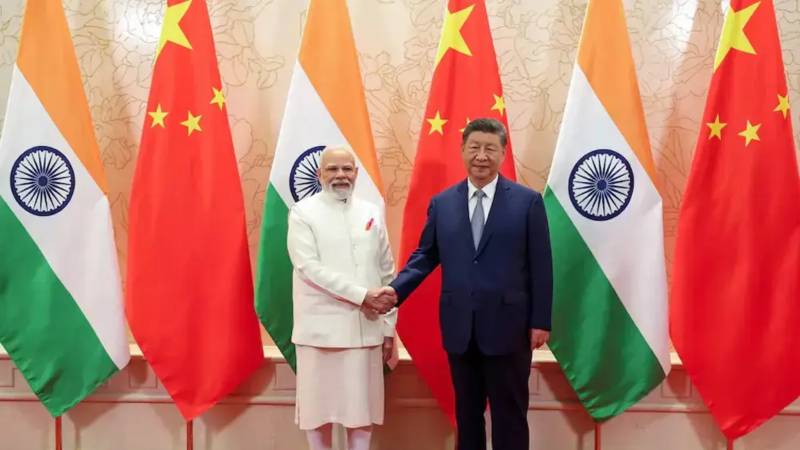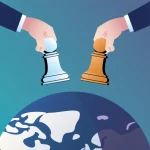Introduction
In 2025, the international order is undergoing profound changes. Old alliances are being tested, new partnerships are emerging, and the balance of global power is shifting faster than many experts anticipated. From the rise of Asia as an economic powerhouse to renewed tensions in Europe and the Middle East, geopolitics has entered a new era of uncertainty and transformation.
The interplay of politics, technology, economics, and security is redefining relationships between nations. This article by Dusktimes.com examines the key geopolitical shifts shaping the world in 2025 and what they mean for the future of international relations.
The Decline of Unipolar Power
For decades after the Cold War, the United States stood as the dominant global power. However, by 2025, the world has moved closer to a multipolar order. While the U.S. remains a critical actor, its influence is increasingly challenged by China, the European Union, India, and regional powers such as Brazil, Turkey, and Saudi Arabia.
This diffusion of power has created both opportunities for cooperation and risks of fragmentation. On one hand, more voices are represented in global governance. On the other, rivalries have intensified as countries jockey for influence in trade, technology, and security.
The Rise of Asia
Asia is at the heart of the geopolitical transformation. China continues to expand its economic and military clout, deepening ties across Africa, Latin America, and the Middle East through its Belt and Road Initiative. At the same time, India has emerged as a counterbalance, leveraging its growing population, technological advances, and strategic partnerships with the West.
Japan, South Korea, and ASEAN nations also play pivotal roles, shaping trade policies, climate initiatives, and security cooperation in the Indo-Pacific region. The Indo-Pacific has now become the focal point of global competition and cooperation.
Europe at a Crossroads
Europe faces a delicate balancing act in 2025. On one side, the European Union seeks to strengthen its unity through green energy transitions, digital sovereignty, and defense cooperation. On the other, internal divisions—over migration, defense spending, and relations with Russia—threaten to undermine its cohesion.
The war in Ukraine has reshaped European security priorities, leading to greater NATO integration and renewed investment in military capabilities. Meanwhile, Europe’s role in global trade, regulation, and technology remains significant, particularly in setting standards for data privacy, AI ethics, and sustainability.
Middle East and Energy Dynamics
The Middle East remains a critical arena for geopolitics, but not just for oil. In 2025, the region is witnessing a transformation driven by renewable energy investments, technological innovation, and shifting alliances. Saudi Arabia and the United Arab Emirates are spearheading initiatives to diversify their economies beyond oil, while Iran continues to exert influence through proxy networks and nuclear ambitions.
Normalization agreements between Israel and several Arab states have altered the regional order, creating new opportunities for cooperation in trade, energy, and security. Yet tensions persist, particularly in Yemen, Syria, and Lebanon, where conflict remains unresolved.
Africa’s Emerging Role
Africa’s geopolitical significance has grown tremendously in 2025. With the world’s fastest-growing population and rich natural resources, African nations are becoming central players in global trade, technology adoption, and climate policy.
Countries like Nigeria, Kenya, and South Africa are strengthening ties with China, the EU, and the U.S., balancing competing influences to secure investment and infrastructure development. The African Continental Free Trade Area (AfCFTA) has also positioned the continent as a potential economic giant in the decades ahead.
Technology and Geopolitical Competition
Technology is a central driver of geopolitical shifts. The race to dominate artificial intelligence, cybersecurity, quantum computing, and space exploration has become a defining feature of global rivalries.
Countries are increasingly viewing technological leadership as essential to national security. The U.S., China, and Europe are competing to set global standards for emerging technologies, while smaller states are leveraging innovation to boost their influence on the world stage. Cybersecurity threats and information warfare further highlight how technology now underpins geopolitics in unprecedented ways.
Climate Change as a Geopolitical Force
In 2025, climate change is no longer a distant concern—it is a central geopolitical issue. Nations are competing for leadership in green technologies such as renewable energy, electric vehicles, and sustainable agriculture. Water scarcity, rising sea levels, and extreme weather events are reshaping migration patterns and sparking conflicts over resources.
International cooperation remains critical, but climate diplomacy is complicated by competing economic interests. While some countries view green technology as an opportunity for growth, others fear economic decline from abandoning fossil fuels. This tension is reshaping alliances across continents.
FAQs
What is driving the geopolitical shifts in 2025?
The main drivers include the rise of Asia, the decline of unipolar U.S. dominance, technological competition, climate change, and shifting energy dynamics.
Which region is most important to global geopolitics today?
The Indo-Pacific is considered the focal point due to the U.S.-China rivalry, India’s rise, and ASEAN’s growing influence.
How is Europe responding to global challenges?
Europe is pursuing digital sovereignty, green energy, and stronger defense, but internal divisions and security threats complicate its role.
Why is Africa becoming more important?
Africa’s population growth, natural resources, and economic integration through AfCFTA make it a major player in global trade and climate diplomacy.
What role does technology play in geopolitics?
Technology is central to competition, with nations vying for dominance in AI, quantum computing, cybersecurity, and space exploration.
Conclusion
The geopolitical landscape of 2025 is defined by complexity, competition, and interdependence. While the U.S. no longer enjoys unchallenged dominance, the rise of new powers and alliances offers both challenges and opportunities for global stability.
The future will depend on how nations manage rivalry and cooperation in key areas such as technology, climate change, and economic integration. For readers of Dusktimes.com, understanding these shifts is essential to navigating the uncertain world ahead.








